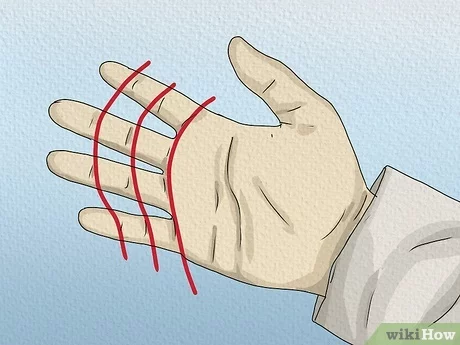 When you think of the word ‘law’ the images that come to your mind are of a stern looking judge seated on an elevated position in the centre of a court house flanked by a grim looking, if not frightened, members of a jury. Lawyers dressed in their flowing robes quarrelling among each other to impress their respective clients, wicked criminals and many more such images. But think of the word ‘Sharia’ and what are the pictures that pop up in your mind? Chopping of hands and stoning to death for adultery.
When you think of the word ‘law’ the images that come to your mind are of a stern looking judge seated on an elevated position in the centre of a court house flanked by a grim looking, if not frightened, members of a jury. Lawyers dressed in their flowing robes quarrelling among each other to impress their respective clients, wicked criminals and many more such images. But think of the word ‘Sharia’ and what are the pictures that pop up in your mind? Chopping of hands and stoning to death for adultery.
Don’t blame yourself. This is the manner in which our minds have been conditioned over a long period of time. ‘Law’ is civilized, ‘Sharia’ is barbaric. This line of misinformation is more accentuated nowadays especially with the advent of the ‘Arab Spring’ with Muslim groups wanting to bring in Sharia in Muslim majority countries. But hang on a minute.
Where did ‘Western Law’ get its ideas from? Here’s a hint. The word ‘canon’ as in law is derived from the Arabic word ‘qanoon’, which means law. And the flowing robes lawyers wear? That too is from early Muslims who mastered the science of law. What’s more, it has been suggested the word ‘baccalaureate’ is derived from the Arabic phrase bi-haqq al-riwayat which, when loosely translated, means ‘a license to teach’. These certificates were handed over to scholars as early as 1147 at the Madraasa (another frightening word in today’s public discourse) after they completed their studies. But all this is sketchy, so let’s get to the bigger picture.
In his seminal research John Makdisi, Professor of law at Harvard, concludes in his article in the North Carolina Law Review in June 1999 ‘the Islamic legal system (Sharia) was far superior to the primitive legal system of England before the birth of the common law. It was natural for the more primitive system to look to the more sophisticated one as it developed three institutions that played a major role in creating the common law. The action of debt, the assize of novel dissension and trial by jury introduced mechanisms for a more rational, sophisticated legal process that existed only in Islamic law (Sharia) at that time.
Furthermore, the study of the characteristics of the function and structure of Islamic law (Sharia) demonstrates its remarkable kinship with the Common Law in contrast to the civil law. Finally, one cannot forget the opportunity for the transplant of these (legal) mechanisms from Islam through Sicily to Norman England in the twelfth century’.
There’s quite a lot of food for thought in those words. No wonder then Prince Charles in his speech on ‘Islam and the West’ at the Sheldonian Theatre at Oxford on October 27, 1993 said that the West owes a great debt of gratitude to Islamic learning which included law among other human endeavours like ‘science, astronomy, mathematics, algebra (itself an Arabic word) history, medicine, pharmacology, optics, agriculture, architecture, theology and music.
Averroes (actual name Muhammad ibn Ahmad ibn Rushd), and Avenzoar (Abd al Malik al Ala Zuhr), like their counterparts Avicenna (Abd-Allah ibn Sina) and Rhazes (Muhammad ibn Zakariya al-Razi) in the East contributed to the study and practice of medicine in ways from which Europe benefited for centuries afterwards’.
So the next time you see an American holding a placard saying ‘No to Sharia in America’ ask him or the Sarah Palins to remove sections of the common law like trial by jury because it’s derived from the Sharia. For those interested, Sharia means ‘the water shed’ (nope, not ‘watering hole’. Sorry).
This brings us to France. Recently President Nicolas Sarkozy requested French scholars to find out whether Islam had contributed in any way to the development of his country. This was in no way intended to be a bridge building exercise between Muslims and Christians but to challenge those who claim that ‘towel heads’ had indeed made vast contributions to Europe and had virtually lit the lights to dispel the ‘Dark Ages’ there. The Renaissance was a result of Muslim contributions and the university in Montpellier was on the lines of Al-Azhar University in Cairo.
Moreover, ‘Napoleon’s French Civil Code seems to be strongly inspired by the Sharia’ according to French scholar Christian Cherfils in his book ‘Bonaparte et L’Islam’. Judge Weeramantry, a top class authority on the history of law, in his book ‘Islamic Influences on International Philosophy and Law’ says ‘there is scope for much research on the influences of Islamic law on European law in general. Research along these lines has commenced and a substantial work in four volumes compares and contrasts the Islamic and French Civil Codes highlighting some striking similarities’. In another section of the book on Islamic international law he says ‘…many of the most modern concepts of contemporary public international law, such as the principles of humanitarian treatment of prisoners of war, had been anticipated by Islamic law.
Its treatises on this specific subject had anticipated by several centuries the first emergence of organized writing in the West on the subject of Public International Law. In fact the eighth-century treatise of Shaybani had been the subject of a four volume commentary by Shamsal-Aimma Sarakshi long before the topic became the subject of Western juristic writing’.
So now we know why Sarkozy didn’t show any further interest in his call to his compatriots to delve into their history vis-a-vis Islam. The information that he would have got wouldn’t have helped him in his pet hobby of Islam-bashing!
Islam’s contribution to the West is under reported and the reasons for that are obvious. The West’s media wouldn’t want their gullible readers to know actual facts of history or else their campaign do demonize Islam and replace the faith with Western ‘Civilization’ would come a cropper. For goodness sake, tell me what kind of civilization is this that the president of the most powerful country orders the killings of his own countrymen without due process of law and that too after winning the Noble peace prize? No wonder Mohandas Gandhi said ‘it would be a good idea’ when asked what he thought of Western civilization.
Coming back to stoning to death for adultery, here’s a shocker. You won’t find that in the Quran. You will find it in the fiqh (jurisprudence) as well as Judaic law. But nobody tells us about the strict conditions of testimony and constraints that Muslim jurists demanded to prove a case of adultery. In fact adultery is so difficult to prove that punishment becomes impossible to apply. Four honorable men are required to witness the actual act taking place. For this they will have to have a close and hard look and if they were to do that well then their position of being ‘honourable’ will mean nothing more than being a member of parliament. In other words they will cease to be honourable men. And for those feminists who wonder why a woman’s testimony is not acceptable in such cases the answer would be women folk in an Islamic environment are prevented from being put into embarrassing situations.
Basically the sharia is pro-victim similar to the Labour Tribunal where an employee is treated in a sympathetic manner and very much unlike the legal institutions where a panel of lawyers hearing complaints against a colleague tend to side with the ‘criminal lawyer’ instead of giving an ear to the grievances of his victim.
This brings us to ‘chopping off the hands of thieves’. This law is meant to protect society from habitual thieves. But in fact Hazrat Umar ibn Khattab had suspended this aspect of Sharia law when there was a famine in the land. Come to think of it, If we were to give Sharia a shot and consequently the ‘chopping of hands for theft’ was universally applied, ‘banksters’ in the West who stole whopping amounts of money from the public including those behind the Sakvithi and the Pyramid scams and more than half of the politicians around the world would be without at least one hand. Now isn’t that a pleasant thought for their victims, which means all of us?
Post Disclaimer | Support Us
Support Us
The sailanmuslim.com web site entirely supported by individual donors and well wishers. If you regularly visit this site and wish to show your appreciation, or if you wish to see further development of sailanmuslim.com, please donate us
IMPORTANT : All content hosted on sailanmuslim.com is solely for non-commercial purposes and with the permission of original copyright holders. Any other use of the hosted content, such as for financial gain, requires express approval from the copyright owners.
 Sri lanka Muslims Web Portal Sri Lanka Muslims News Center
Sri lanka Muslims Web Portal Sri Lanka Muslims News Center
 Donate
Donate


